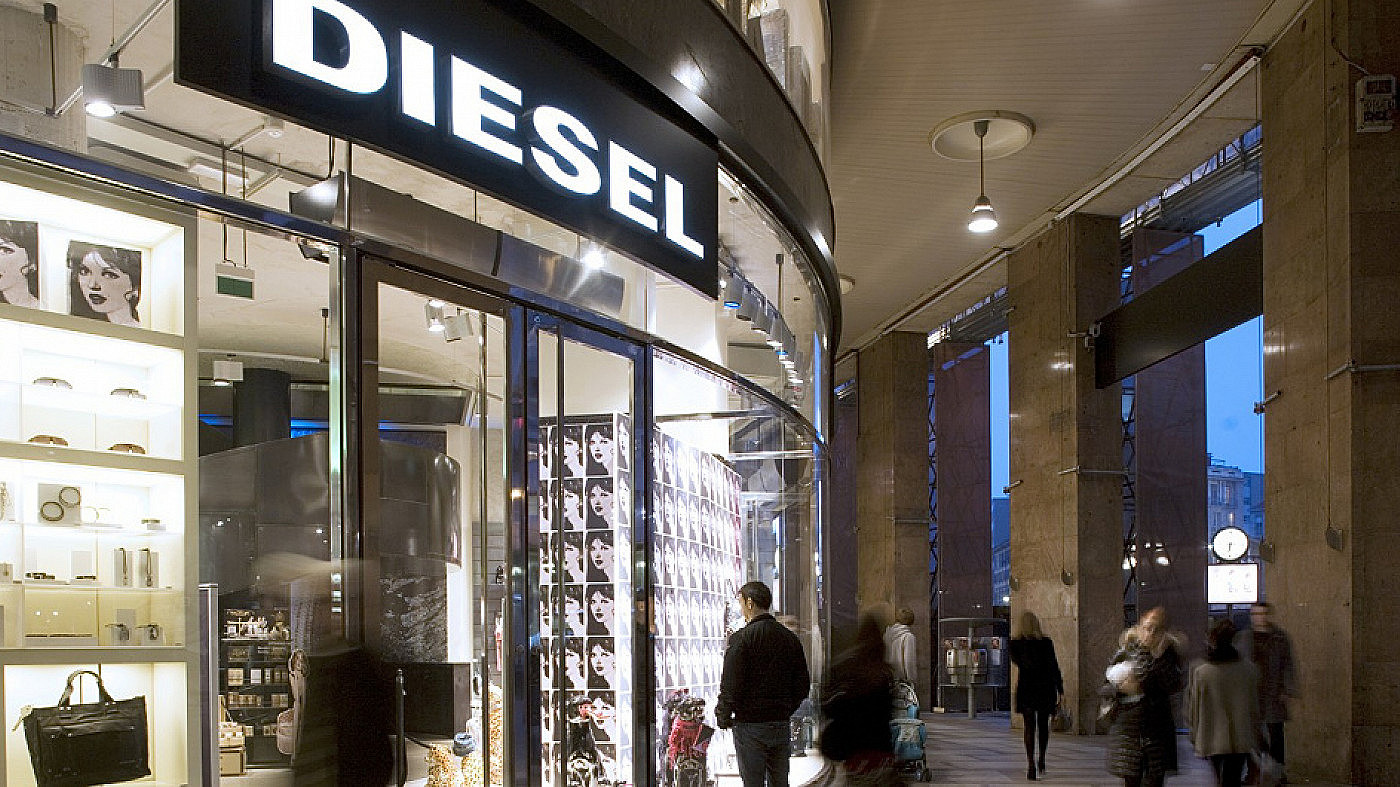
How Renzo Rosso Managed the Turnaround of Diesel - CFO Services
Only The Brave ("OTB") is the holding company owned by Renzo Rosso, which holds the brand's Diesel, Maison Margiela, Marni, Viktor&Rolf, and Paula Cademartori. It also produces licensed products through companies like Staff International and Brave Kid, including brands such as DSquared2 and junior clothing lines.
The company recently published its financial results for 2019, confirming a solid performance for the group and its brands. Consolidated revenue exceeded EUR 1.5 billion, reaching 1,530 million, with a 6.4% growth compared to 2018 across all activities, channels, and regions. The close EBITDA stood at EUR 190 million, while the EBIT was positive at EUR 18 million, marking a significant change in trend compared to the previous year. The consolidated Net Financial Position improved, reaching EUR 124 million (Net Debt/EBITDA 0.65x), confirming the group's strong capitalization and ability to support future growth.
However, just two years ago, Diesel, the core denim brand of the group with a loyal customer following, experienced a significant performance decline. Diesel faced losses, and its product range was sold at heavily discounted prices. The average age of its customers was over 40, with younger consumers being more interested in sportswear marketed by new streetwear brands like Supreme and emerging brands like Vetements and Off-White. "I started to perceive the problem," says Renzo Rosso, Diesel's founder, in a recent interview with Vogue magazine. "Diesel was 40 years old. It needed to regenerate the engine."
In March 2019, Diesel USA filed for Chapter 11, a form of voluntary bankruptcy under the U.S. bankruptcy law that allows companies to reorganize based on a turnaround plan. In Diesel's case, this involved closing underperforming stores, restyling existing stores, and opening pop-up stores. The company then initiated an executive and strategic review, which included cutting mass-market fashion lines with lower added value and doubling down on high-end denim production to reposition itself towards a design-focused clientele with higher purchasing power. "I haven't slept for two years," says Rosso. "It has been the most challenging thing I have ever done."
None of these actions alone represented a definitive solution, but the speed of intervention combined with the number of moves implemented simultaneously allowed Diesel to overcome its crisis. The U.S. division achieved breakeven already in the summer of 2019. Worldwide, customer flow in Diesel stores grew by 7% compared to the previous year. This approach to evolution and change can provide insights for all those brands that, having initially experienced significant public success, struggle to maintain their positioning and the creative energy that characterized their early years. But what were the key factors underlying Diesel's turnaround? Renzo Rosso explains it directly.
BACK TO THE CORE BUSINESS
64-year-old Rosso admits that he got distracted, leaving the supervision of Diesel in the hands of his executives. "I wanted time to focus on myself and grow as a person," says Rosso, who, as the founder of Diesel and the father of seven children, is also a serial investor.
Besides the owned or exclusively licensed brands, Renzo Rosso, directly and indirectly, holds shares in around 20 companies, including what is now Yoox Net-a-Porter - in which he invested before its 2009 IPO - and has interests in the wine, olive oil, organic food, hospitality, and digital startup incubator sectors. While playing a more strategic than operational role in his invested companies, he is still a member of various boards of directors, which means he has a packed schedule
of board meetings. "I was more focused on other brands than my own."
The defocusing of Diesel's founder coincided with a challenging time for denim, which was losing ground to a new trend: yoga pants. Global sales of performance-inspired sportswear had increased from around $25 billion worldwide to almost $80 billion in 2018 over five years, according to Euromonitor. Recently, there has been renewed interest in denim, with a new focus on artistic washes, vintage styles, and distressed looks. Renzo Rosso entirely concentrated on revitalizing Diesel, streamlining all activities that did not concern the management of the OTB holding company (including personal interests). Rosso owns a yacht on which he claims to have spent only 15 days last year, a house on the Grand Canal in Venice that he visited "perhaps three times" in 2018, and a farm in northern Italy that he uses for private meetings. There, he met with John Galliano multiple times before hiring him to design for Maison Margiela.
Rosso returned to full-time management of Diesel two years ago, replacing the former CEO and removing almost all his direct collaborators, including heads of styling, marketing, merchandising, customer service, and human resources. He moved his son Stefano from his position as CEO of OTB to oversee Diesel's North American operations. "It might seem like a step backward," says Stefano. "But being coordinated from the headquarters is so boring. This is much more interesting: you have a real perception of the impact of your decisions."
FOCUS ON THE PREMIUM SEGMENT
Renzo Rosso doesn't claim to be a designer. "I have never designed anything in my life," he says. "The things I can control are strategy and communication." Perhaps his most important move was in 2018 when he discontinued the production of lower-priced and lower-quality clothing lines for Diesel, which, in his view, were diluting the brand in the eyes of fashion-interested consumers.
This move reduced revenues by approximately EUR 320 million in 2017-2019, bringing the company's cumulative sales to EUR 810 million in 2018. This strategic choice effectively halved Diesel's U.S. business, with North America accounting for about 10% of Diesel's revenue. Filing for Chapter 11, however, allowed the company to manage the reorganization flexibly, ensuring the complete satisfaction of all creditors.
SEARCHING FOR AND VALUING NEW TALENT
In 2018, Rosso launched the "Red Tag" sub-label for Diesel, serving as a laboratory for a stream of new experimental collaborations and capsule collections characterized by higher unit prices. Unlike the past mass-market lines with lower added value, the new collections were aimed at "fashion people." Diesel then recruited designers, including Shayne Oliver and Gosha Rubchinskiy, to create capsule collections.
This strategy was accompanied by aggressive communication based on events that generated buzz in the media, such as opening a pop-up store in New York selling Diesel products but with intentionally incorrect branding, simulating counterfeiting. "This is a good strategy to make the brand cool again," Stefano Rosso stated. "When you have a beautiful car, you take it for granted and start looking at other cars. I think that's what we did with denim."
Today, Diesel represents 60% of OTB group's total revenue and is in good health, a remarkable success story considering the flatness of the Italian economy over the past decade. When asked about future challenges, Renzo Rosso responds, "Luxury will remain fantastic, especially in China and India, with many more potential
consumers being born every minute. But the problem is creating and fuel desire in these consumers in a world where you can have everything you want in a day. That's why our Red Tag capsule is designed to be pre-ordered and delivered after a few months." Nurturing hype by increasing the desirability and exclusivity of the brand, following the rhythm of production cycles.

 News
News